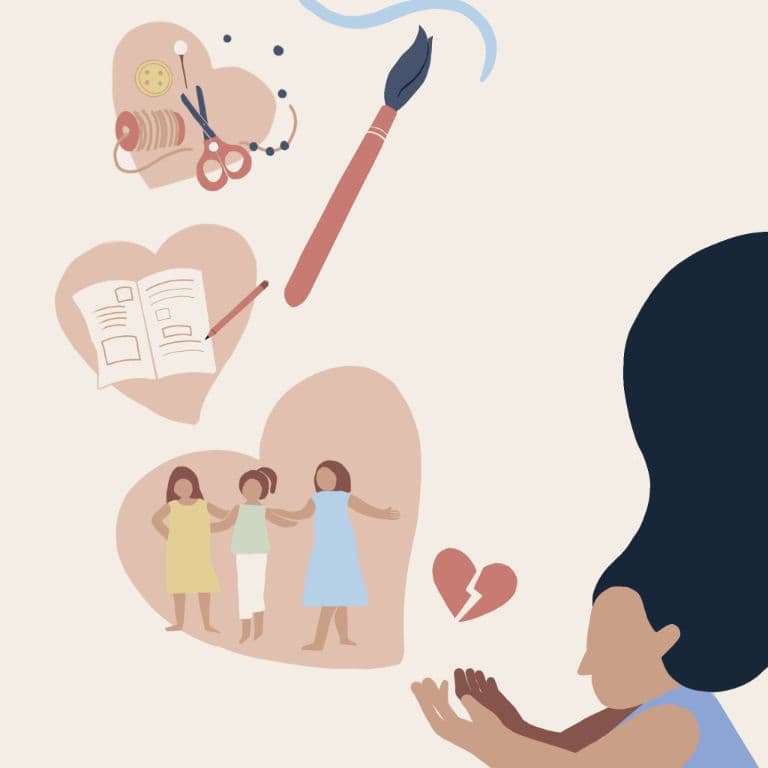Relationships and emotional attachments have a profound impact on our self-image, whether we realise it or not. The end of romantic relationships is so universal that it is marked with open discussion and sympathy. Perhaps, because of this universality, people can minimize how deeply hurtful and damaging a breakup really can be for an individual.
Breakups are often accompanied by feeling rejected or unwanted. When a breakup is unexpected or sudden, the rejection can be even more intense or traumatic. Often, the rupture of self-esteem and past memories can be devastating.
During the course of a relationship, it’s very normal to intertwine with a partner. Goals and directions change, as do wants and needs for now and the future.
This is because intimacy involves opening up to another person – opening up to their love, wants, needs, feelings, opinions, goals, and dreams. We slowly align with those goals by opening up to that person, so we can’t help but be influenced and eventually move in the same direction sometimes.
Often that involves adjusting our own sails or streamlining our lives to be more on the lines of theirs. It’s all a healthy part of being with someone fully, and part of the unpredictable magic of relationships.
However, a breakup means the undoing of this merging, which is painful to go through.
However strong and independent a person may be, the fracturing of a relationship can also mean the fracturing of the self.
One of the most painful parts is that the familiar is gone, plans are changed and the future all of a sudden has too many blank spaces where happy things used to be.
An important part of the healing is reclaiming your “sense of self”, which involves rebuilding and strengthening the sense of who you are, independent of the relationship.
Ways to heal from a relationship
- Get creative
- Go back in time
- Spend time with others
- Focus on the present
- Love yourself
Journaling for emotional release

Emotional release is an important part of healing.
Journaling is one way to do this as it allows you to capture and give definition to the thoughts and feelings that are swirling around inside. Journaling doesn’t have to be done every day to have an effect. Even a few times a week can help the healing.
Reclaiming the self
Reclaiming a strong self-concept – establishing who you are outside of the relationship – is critical and will be enormously supportive of recovery. Think about the parts of yourself that might have been pushed aside during the relationship. When you’ve found these, find ways to build them and nurture them.
Support and therapy
Family and friends can help, but sometimes they have their limits.
In some cases, professional help from therapists may be more useful and may provide a more neutral and long-lasting perspective.
They can also point out deeper patterns of behaviour or thinking that a broken relationship may be symptomatic of so that future relationships are healthier and happier.
It's okay to be sad and do not worry about timelines
Allow yourself the time to heal. Often there is tremendous pressure to want to hurry things and to be harsh on oneself when one feels they are taking “too long” to get over things. Be gentle, take your time.
Sleep, eat, exercise. Repeat
As tempting as it is to throw your regular cycle out the window, now is the time it is most crucial to stick to it.
Keep to your usual sleeping and eating schedule (and amounts) as much as possible, and get out some extra anger or energy in the gym. It may be hard to do at first, even trying to go through these can speed the healing process.
Find new goals
When you feel ready, (or maybe a little before then) take up new interests, establish new goals or re-establish your direction.
Given that your need to connect may be left unfulfilled after, anything that will give you the opportunity to connect with yourself or others who will also see you as your own, unique person can really help the healing process.
Practice self-care
According to Google Trends, the number of searches for “self-care” has more than doubled since 2015, and it’s become somewhat of a buzzword.
As confused by some, however, self-care is not synonymous with self-indulgence or being selfish. Self-care means taking care of yourself so that you can be healthy, you can be well, you can do your job, you can help and care for others, and you can do all the things you need to and want to accomplish in a day.
It is anything that you do for yourself that feels nourishing.
According to a World Health Organization definition, self-care includes everything related to staying physically healthy — including hygiene, nutrition, and seeking medical care when needed.
It includes all the steps an individual can take to manage stressors in their life and take care of their own health and well-being.
Common examples of self-care may include maintaining a regular sleeping routine, eating healthy, spending time in nature, doing a hobby you enjoy, and expressing gratitude.
Self-care can look different for everyone, but to count as self-care, the behaviour should promote health and happiness for you.
Pay attention to yourself
To heal from a relationship, you deserve your own careful attention and the practice of mindfulness can be helpful to be able to do that.
The good news is that in most cases, after the devastating rain, the clouds clear out. In the end, breakups can lead to positive growth and maturity, deeper self-knowledge, and better days ahead.
Disclaimer - This information is educational and should not be construed as medical advice. Please consult your doctor before making any dietary changes or adding supplements.
ProactiveForHer is a digital clinic for women, offering accessible, personalised, and confidential healthcare solutions. We offer out-patient care, diagnostic services and programs for various health concerns of Indian women, across their lifetime - from puberty to pregnancy to menopause.

